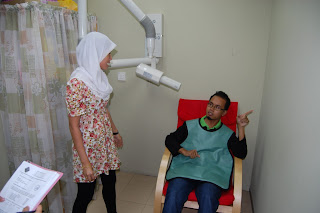Steve Jobs is the CEO of Apple, which he co-founded in 1976. He was born February 24, 1955, in San Francisco, California, and was adopted by Paul and Clara Jobs. He grew up with one sister, Patty. Paul Jobs was a machinist and fixed cars as a hobby.
After graduating from high school in 1972, Jobs attended Reed College in Portland, Oregon, for two years. He dropped out to visit India and study eastern religions in the summer of 1974. In 1975 Jobs joined a group known as the Homebrew Computer Club. One member, a technical whiz named Steve Wozniak, was trying to build a small computer. Jobs became fascinated with the marketing potential of such a computer. In 1976 he and Wozniak formed their own company. They called it Apple Computer Company.
 The original Apple Computer, also known retroactively as the Apple I, or Apple-1, is a personal computer released by the Apple Computer Company (now Apple Inc.) in 1976. They were designed and hand-built by Steve Wozniak. Wozniak's friend Steve Jobshad the idea of selling the computer. The Apple I was Apple's first product, and to finance its creation, Jobs sold his only means of transportation, a VW van. It was demonstrated in April 1976 at the Homebrew Computer Club in Palo Alto, California.
The original Apple Computer, also known retroactively as the Apple I, or Apple-1, is a personal computer released by the Apple Computer Company (now Apple Inc.) in 1976. They were designed and hand-built by Steve Wozniak. Wozniak's friend Steve Jobshad the idea of selling the computer. The Apple I was Apple's first product, and to finance its creation, Jobs sold his only means of transportation, a VW van. It was demonstrated in April 1976 at the Homebrew Computer Club in Palo Alto, California.
The Apple II series (trademarked with brackets as "Apple ][") is a set of 8-bit home computers, one of the first highly successful mass-produced microcomputer products, designed primarily by Steve Wozniak, manufactured by Apple Computer (now Apple Inc.) and introduced in 1977 with the original Apple II. In terms of ease of use, features and expandability the Apple II was a major technological advancement over its predecessor, the Apple I, a limited-production bare circuit board computer for electronics hobbyists that pioneered many features that made the Apple II a commercial success.
Shortly thereafter, Jobs and Wozniak redesigned their computer, with the idea of selling it to individual users. The Apple II went to market in 1977, with impressive first year sales of $2.7 million. The company's sales grew to $200 million within three years. Jobs and Wozniak had opened an entirely new market—personal computers.
In 1984 Apple introduced a revolutionary new model, the Macintosh. The on-screen display had small pictures called icons. To use the computer, the user pointed at an icon and clicked a button using a device called a mouse. This process made the Macintosh very easy to use. The Macintosh did not sell well to businesses, because it lacked features other personal computers had. The failure of the Macintosh signaled the beginning of Jobs's downfall at Apple. Jobs resigned in 1985, though he retained his title as chairman of its board of directors.
Jobs soon hired some of his former employees to begin a new computer company called NeXT. Late in 1988 the NeXT computer was introduced at a large gala event in San Francisco, aimed at the educational market. The product was very user-friendly, and had a fast processing speed, excellent graphics displays, and an outstanding sound system. Despite the warm reception, however, the NeXT machine never caught on. It was too costly, had a black-and-white screen, and could not be linked to other computers or run common software.
In 1986 Jobs purchased a small company called Pixar from filmmaker George Lucas. Pixar specialized in computer animation. Nine years later Pixar released Toy Story, a huge box office hit. Pixar later went on to make Toy Story 2 and A Bug's Life, which Disneydistributed, and Monsters, Inc., among other hits. In December of 1996 Apple purchased NeXT Software for over $400 million. Jobs returned to Apple as a part-time consultant to the chief executive officer (CEO). Over the next six years Apple introduced several new products and marketing strategies.
In November 1997 Jobs announced Apple would sell computers directly to users over the Internet and by telephone. The Apple Store became a runaway success. Within a week it was the third-largest e-commerce site on the Internet. In September of 1997 Jobs was named interim CEO of Apple.
In 1998 Jobs announced the release of the iMac, which featured powerful computing at an affordable price. The iBook was unveiled in July 1999. It includes Apple's AirPort, a computer version of the cordless phone that would allow the user to surf the Internet wirelessly. In January 2000 Jobs unveiled Apple's new Internet strategy. It included a group of Macintosh-only Internet-based applications. Jobs also announced that he was becoming the permanent CEO of Apple.
 Apple is also leading the digital music revolution, having sold over 110 million iPods and over three billion songs from its iTunes online store. Apple entered the mobile phone market in 2007 with its revolutionary iPhone.
Apple is also leading the digital music revolution, having sold over 110 million iPods and over three billion songs from its iTunes online store. Apple entered the mobile phone market in 2007 with its revolutionary iPhone.






















